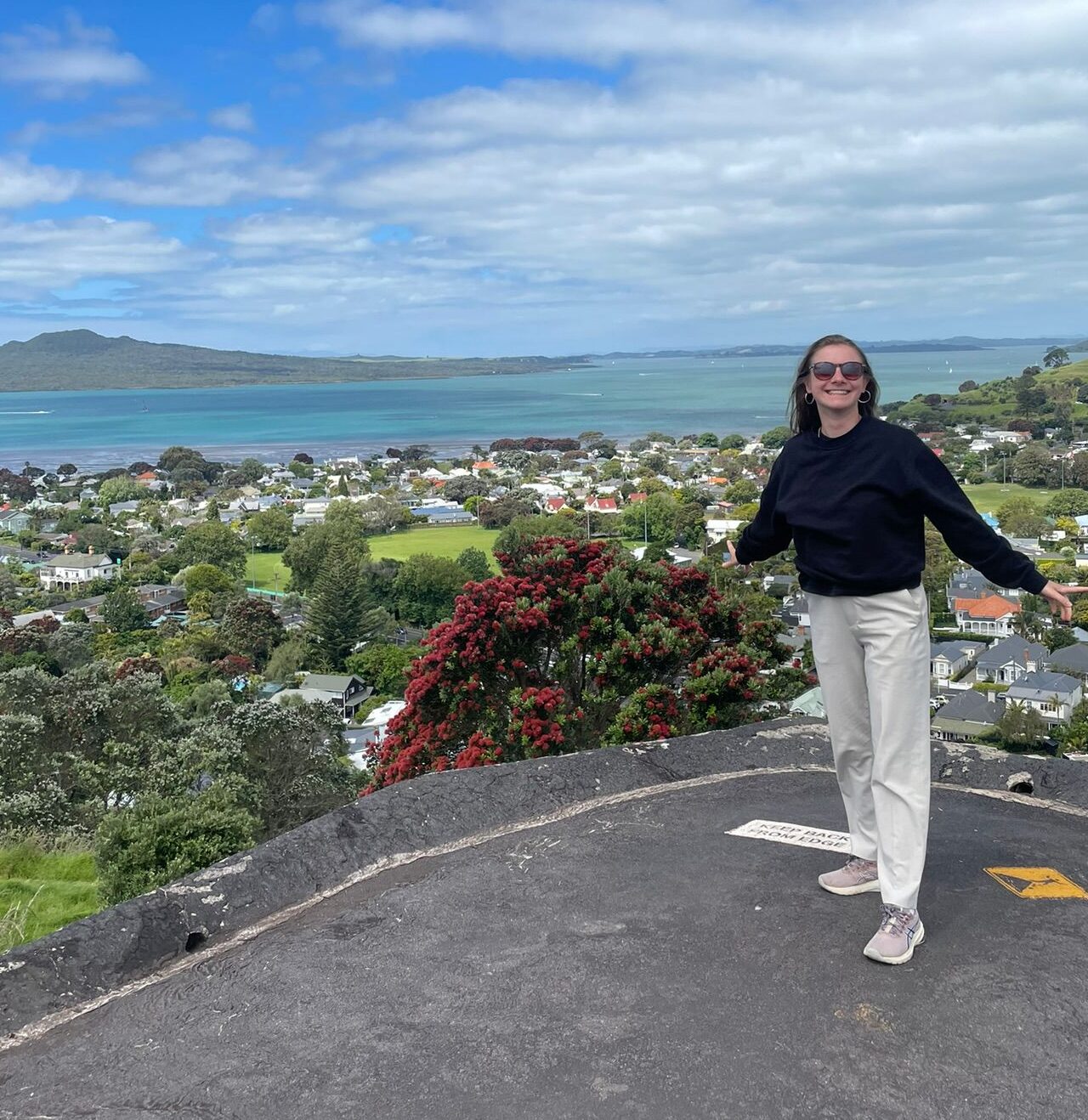Hélène Lechêne, Former Board Member

Briefly introduce you : what position did you hold on the magazine’s board ; what motivated you to join it at that time ; what is your position today?
I was Deputy Editor at The TSEconomist for a year in 2021-2022. I started to be involved in The TSEconomist association when I was in L3, from then, I wrote and proofread some articles regularly for two years. In M2, when I got the opportunity to join the board, I felt like it was exciting to understand what was behind the scenes of the association: how can a Google Drive turn into a printed journal. Being part of the board was also a way to meet new people from different programs that you do not encounter in your usual courses.
"I have always been interested in writing and reading, and it made sense to promote an association that gives people freedom to express themselves on a topic of their choice."
Today, I work at Naval Group Pacific in Adelaide, Australia, as a VIE, (Volontaire International en Entreprise), international volunteer abroad, a position for young graduates working in a French company abroad. Naval Group Pacific is a maritime research center, and a subsidiary of Naval Group, a European leader in naval defense. My role is to coordinate and to contribute to the development of a maritime simulation platform to train artificial intelligence algorithms for underwater drones. I participate in technical tasks, mostly software engineering, and in business development tasks with grants applications and by building relationships with local and international researchers.
Can you share a good memory from your time on the magazine’s board?
A good memory from my time on the magazine’s board was when we received our first printed edition as a new board. The first summer as a new board, we had to manage the association remotely without knowing each other and with a bit of uncertainty regarding the process. It resulted in a delay in the first publication. It was rewarding to finally discover the paper version or the work we had gathered and to be able to share it with our family and friends.
What were your main goals while being on the board, and did you achieve them?
My main goals as a deputy editor were to find enough writers, to proofread their articles, and to help the rest of the board with the organization of events and general management of the association. It was not easy to recruit writers as it was the year after COVID-19, some new students were not really aware of the existence of the association and there were still a lot of courses taught remotely. TSE being a demanding school, students were often already really busy studying and did not have much time to commit to writing an article. But above all, students were often scared of not writing well enough for the association. It was important to remind them that an article does not have to be perfect and that two or three proofreaders would help them to make their article even better.
What skills did you develop while working for the magazine that are useful to you today?
Thanks to The TSEconomist, I have improved my writing skills in English, which is more than useful today as I live in an English-speaking country. It also helped me improve my ability to summarize and to report complex ideas which I believe is necessary in every job. I have developed management skills, defining and meeting deadlines and working with people from different backgrounds. When doing interviews for a work position, I have always mentioned working for the TSEconomist association and I believe that all recruiters have been interested. Being a member of the magazine is a concrete way of showing your ability to work with a team to produce an outcome within a given deadline.
More Articles

Norwegian Mobility: Between Sustainability and long-distance challenges
By: Rappenne Maëlys
Norway and Scandinavia are often viewed as models concerning the environment and sustainability actions. Oslo, Norway’s capital, was awarded the European Green Capital Award 2019. Since 2010, this title has been given by the European Commission to cities based on recent progress, current status, and future plans...
The Rise of Chinese Electric Vehicles in Europe : An Eco-nomic Analysis of Challenges and the EU’s Response
By: Blanchard Mathis
The rapid ascent of Chinese electric vehicle (EV) manufacturers is intensifying trade tensions with both the United States and the European Union. In June 2024, the European Commission imposed provisional countervailing duties ranging from 17.4% to 38.1% on EVs imported from China...
Airbus Vs Boeing: A historical duopoly
By: Tazi Narjis
The early 1970s saw the creation of Airbus, a symbol of Franco-German cooperation at first, then European collaboration with the arrival of Spain and the United Kingdom. The creation of Airbus was a response to the dominance of American aircraft manufacturers in the post-World War II aviation market. Despite a difficult start the 1980s saw the beginning of a breakthrough for Airbus, with the introduction of the A310 and then the A320. In the 1990s...
A new (temporary) wall in the heart of the Schengen Area
By: Mondelli Martin
On September the 16th 2024 Europe woke up with an unusual piece of news: international borders were reintroduced in Germany. Even though some citizens were not expecting this to happen anytime soon, for Swiss, Austrians, Czechs and Poles this situation was not new. In fact, border controls that were introduced on October the 16th 2023 are still in place...


